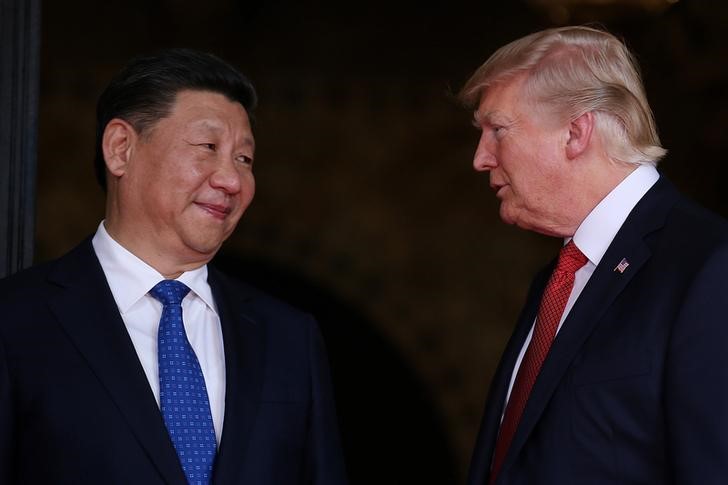(Bloomberg Opinion) -- The impact of the U.S.-China trade spat is no longer limited to just the two countries. The Trump administration’s latest move – seeking to limit access to American suppliers for the Chinese telecom manufacturer Huawei Technologies Co. – may force many businesses worldwide to reconsider their own dependence on supply chains that go through China, and consumers their reliance on Chinese phones. The more they try to insulate themselves from similar future actions, the more global this trade conflict will become and the greater the likelihood it will end up re-aligning global economic relationships.
It remains an open question whether the dueling tariffs will be a permanent feature of a more fragmented and protectionist global system or, instead, just part of a journey to still-free but fairer trade. What’s clear already is that there’s limited likelihood of going back to the way things were.
The initial set of restrictions imposed by Washington on Beijing showed that China cannot take for granted unfettered access to U.S. markets to sell its goods and services; nor could it continue to easily force American companies doing business in China to transfer their technological knowhow. The most recent restrictions send a broader message to companies and households worldwide – that this tit-for-tat process affects far more than Chinese access to the U.S. and U.S. access to China.
By placing a big question mark over the ability of Chinese companies to remain up to date on U.S.-sourced technologies that are key to full functionality, the latest U.S. announcements risk dampening the sale of Chinese goods and services worldwide. (And all the more reason, as I argued last week, for Beijing to resist its bad habits that tend to surface under stress.)
In the face of higher uncertainty, it’s not unusual for both consumers and producers to try to protect themselves from the variables in play, including through greater diversification. In the current circumstances, that means companies moving supply chains away from China and consumers opting for products whose functionality over time does not depend on close coordination between U.S. and Chinese firms.
Initially, consumers and producers might have been unpleasantly surprised by operational concerns raised by the Huawei restrictions, but now they’re likely to be more skeptical and risk averse. This is particularly true because the world is realizing that the current trade tensions are a symptom not only of economic issues but also of national security concerns. With each measure and each retaliation, we are seeing the further weaponization of economic and financial tools.
The deepening divide, coupled with the adjustments that producers and consumers will make after the Huawei restrictions, means that a short-term deal between the U.S. and China – if reached – could not bring about a return to the status quo ante. The best that China can realistically hope for at this stage is a series of cease-fires that avoid serious damage to its economic growth, financial stability and broader development process.
